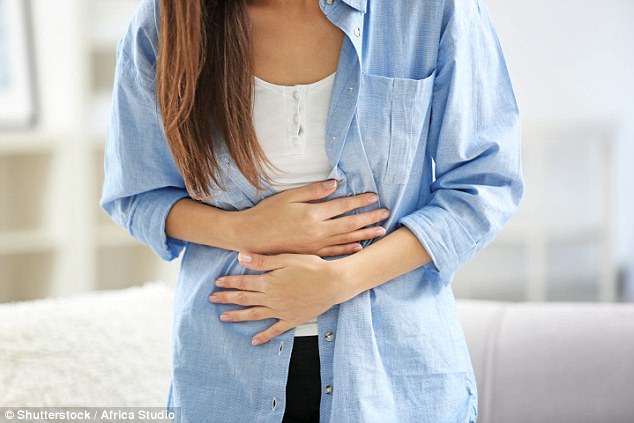Scientists have discovered the reason some women have heavier periods than others.
After years of research, a team has identified a key protein that helps repair the womb lining during menstruation, limiting blood loss.
They found some women have lower levels of oxygen in their blood, leading to a slower production of this protein, and therefore more intense blood-loss.
The discovery, published today by Edinburgh University, could pave the way to developing non-hormonal treatments for heavy periods, without having to resort to a hysterectomy, the surgical removal of the uterus.
Heavy bleeding affects one in three women and can lead to severe anemia – where there are not enough red blood cells to carry oxygen around the body.
Current therapies are hormone based and often prevent pregnancy.
But hormonal treatments can result in side effects and in many cases, women experiencing heavy periods may have to go undergo a hysterectomy.
Edinburgh University researchers studied the womb lining, known as the endometrium. This is shed during menstruation, leaving behind a wound-like surface that must heal to limit blood loss.
They discovered that lowered levels of oxygen – known as hypoxia – stimulates production of a protein called HIF-1, which drives repair of the womb lining.
Women with heavy periods had reduced levels of HIF-1 compared with women with normal blood loss, according to the findings.
Tests on mice using a drug to boost levels of HIF-1 led to improved tissue repair and reduced blood loss.
The researchers said the results of the study, published in the journal Nature Communications, offer ‘hope’ for therapies.
Study leader Dr Jackie Maybin, of the University of Edinburgh’s Medical Research Council Centre for Reproductive Health, said: ‘Our findings reveal for the first time that HIF-1 and reduced levels of oxygen in the womb are required during a period to optimise repair of the womb lining.
‘Excitingly, increasing levels of the HIF-1 protein in mice shows real promise as a novel, non-hormonal medical treatment.’
A spokesperson for the charity Wellbeing of Women, which helped to fund the research, said: ‘Heavy bleeding is a debilitating and common condition that affects thousands of women and girls but too often gets dismissed.
‘Wellbeing of Women is delighted to have supported this work, which has led to the breakthrough discovery of causes of the condition so treatments might now be developed.
‘These findings give hope to women who have suffered in silence with the condition for too long.’












